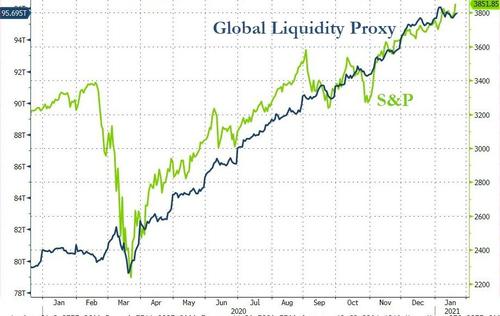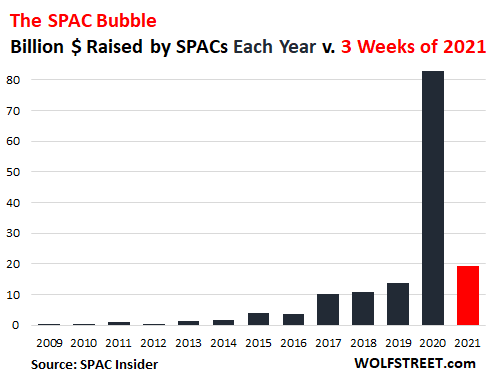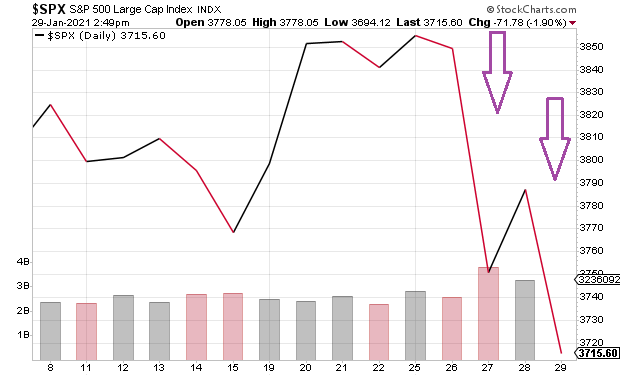The more that global central banks create money (a.k.a. “liquidity”), the more that it overwhelms the supply of stock shares. Too much money is chasing a limited amount of shares.
Indeed, the dynamics currently favor skyrocketing stock movement. At least as long as participants are inclined to speculate.

The speculative fervor is popping up everywhere. For example, investors are pouring cash into special purpose acquisition companies (SPACs).
These entities are affectionately known as “blank check companies” because they have no operations. They largely exist as a way for speculators to bypass the initial public offering (IPO) process.

The SPAC insanity is only one sign that the stock bubble may be closer to bursting. This week, an army of day traders began overwhelming hedge fund short sellers. One of their biggest targets? A moribund brick-n-mortar retailer of video games, GameStop (GME).
What came next, however, is beyond manic. A company worth roughly $15 per share suddenly began trading above $400 per share.

On the one hand, it would seem that scores of everyday Joes and Joannes have outsmarted Wall Street big wigs. Stick it to the hedgies!
On the flip side, bubble mania never ends well. In fact, should enough hedge funds be forced to liquidate their long stock shares to deal with investor redemption requests and capital requirements, the selling pressure would force stocks lower.
The GameStop (GME) phenomenon has already caused the broader markets to sell off significantly this week. And there are certainly no guarantees about next week.

Will the day trader versus hedge fund activity prick the broader stock bubble? Maybe.
If nothing else, recent events remind us that the Federal Reserve (alongside central banks worldwide) could eventually lose the faith of financial market participants. And that will be devastating for those who do not have a plan to protect.
Would you like to receive our weekly newsletter on the stock bubble? Click here.
